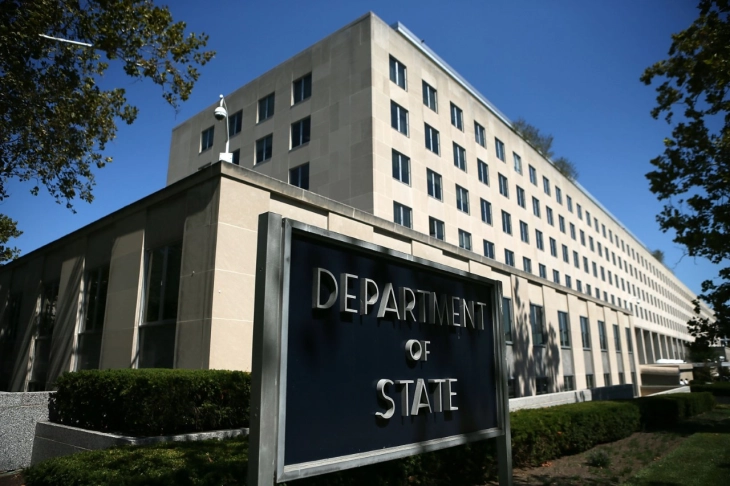US State Department: North Macedonia does not meet minimum standards for elimination of trafficking
- The Government of North Macedonia does not fully meet the minimum standards for the elimination of trafficking but is making significant efforts to do so. The government demonstrated overall increasing efforts compared with the previous reporting period; therefore North Macedonia remained on Tier 2, states the 2024 Trafficking in Persons Report published Monday by the United States Department of State, as reported by Voice of America in Macedonian.
- Post By Angel Dimoski
- 20:29, 24 June, 2024

Washington, 24 June 2024 (MIA) - The Government of North Macedonia does not fully meet the minimum standards for the elimination of trafficking but is making significant efforts to do so. The government demonstrated overall increasing efforts compared with the previous reporting period; therefore North Macedonia remained on Tier 2, states the 2024 Trafficking in Persons Report published Monday by the United States Department of State, as reported by Voice of America in Macedonian.
“These efforts included increasing overall law enforcements efforts, including investigating, prosecuting, and convicting more traffickers. The government continued to increase resources for the NGO-run shelter for trafficking victims (the shelter) and revised SOPs on identifying victims and referring victims to services. The Ministry of Interior (MOI) and the State Labor Inspectorate signed a memorandum of cooperation to improve coordination of labor trafficking investigations, including through joint inspections and trainings. However, the government did not meet the minimum standards in several key areas,” the report says.
According to the report, the Organized Crime and Corruption Prosecution Office (OCCPO) did not have sufficient resources to handle all cases under its jurisdiction, and some local police and district prosecutors did not report potential trafficking cases to the Anti-Trafficking Task Force (task force) or OCCPO and used crimes with more lenient penalties to prosecute traffickers. While the government increased funding to the shelter, this covered only a small percentage of the shelter’s operating expenses
Similarly, the report adds, the government did not allocate funding to mobile teams that identify most potential victims each year, despite past commitments to do so. Local police and some border agents did not consistently screen for trafficking indicators and, as a result, authorities likely deported some unidentified trafficking victims without referral to appropriate services or safeguards to prevent re-trafficking.
“As reported over the past five years, human traffickers exploit domestic and foreign victims in North Macedonia, and traffickers exploit victims from North Macedonia abroad. Women and girls in North Macedonia are exploited through sex trafficking and forced labor within the country in restaurants, bars, and nightclubs. Sex traffickers recruit foreign victims typically from Eastern Europe and the Balkans, including Albania, Bosnia and Herzegovina, Kosovo, Moldova, Romania, Russia, Serbia, and Ukraine. Citizens of North Macedonia and foreign victims transiting North Macedonia are exploited for sex trafficking and forced labor in construction and agricultural sectors in Southern, Central, and Western Europe. Traffickers, who are often relatives or close friends, exploit Romani children through forced begging and sex trafficking within forced marriages. Traffickers increasingly recruit victims with fake online profiles on social media and various online applications. In 2021, traffickers from Taiwan recruited workers from Taiwan with false promises of work in North Macedonia for the purpose of forced labor. Traffickers confiscated passports, withheld wages, restricted movement, and set up a call center where they forced the victims from Taiwan to make fraudulent calls,” the report notes.
Migrants and refugees traveling or being smuggled through North Macedonia, particularly women and unaccompanied children, are vulnerable to trafficking by their smugglers or other migrants. NGOs report children with mental and physical disabilities are increasingly vulnerable to trafficking.
Officials and observers continued to report low-ranking police officers may be complicit in trafficking, including hiding evidence, accepting bribes, changing patrol routes to benefit perpetrators, tipping off perpetrators before law enforcement actions, or direct involvement in organized crime.
Photo: MIA Archive







